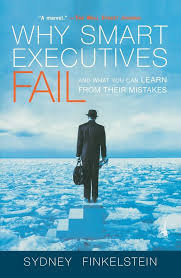Title: Why Smart People Sometimes Fail — And What They Often Don’t Know: A Comprehensive Exploration of Cognitive Limitations and Success Factors
Executive Summary
This white paper explores a paradox that continues to intrigue psychologists, educators, and business leaders: why highly intelligent individuals sometimes fail in life, leadership, or career pursuits. Drawing on key works such as The Intelligence Trap by David Robson, Applied Intelligence by Robert J. Sternberg, and Why Smart Executives Fail by Sydney Finkelstein, the paper presents a comprehensive synthesis of the cognitive, emotional, and behavioral patterns that often inhibit success among the intellectually gifted. Furthermore, it identifies actionable strategies and skills that can complement intelligence to drive sustained personal and professional success.
1. Introduction
Conventional wisdom associates high intelligence with success. In many societies, intelligence quotient (IQ) scores, academic achievements, and intellectual credentials serve as proxies for future accomplishment. Yet, research shows that intelligence, while important, is not sufficient. Many highly intelligent individuals encounter significant failures in leadership, relationships, and career paths.
This paper seeks to bridge the gap between intellectual potential and practical success. It explores the psychological traps, socio-emotional blind spots, and organizational misalignments that often hinder the success of smart individuals and proposes a more integrative model of performance.
2. Defining Intelligence and Its Limitations
2.1 Academic vs. Practical Intelligence
Robert Sternberg's triarchic theory of intelligence differentiates between analytical, creative, and practical intelligence. While most educational systems emphasize analytical intelligence (problem-solving, reasoning), practical intelligence (common sense, contextual awareness) is equally, if not more, important in real-world functioning.
2.2 Emotional Intelligence
Daniel Goleman's model of emotional intelligence (EQ) identifies self-awareness, empathy, and relationship management as core competencies. High IQ individuals often neglect these areas, contributing to social and professional dysfunction.
2.3 The Myth of Meritocracy
Society tends to overemphasize raw intelligence as a predictor of success. This creates unrealistic expectations, which may lead smart individuals to overestimate their competence and neglect other critical areas of development.
3. Why Smart People Sometimes Fail
3.1 Overconfidence and Fixed Mindsets
Smart individuals are prone to overconfidence bias due to early academic success. According to Carol Dweck, those with fixed mindsets believe intelligence is innate and unchangeable, which makes them avoid challenges that threaten their self-image.
3.2 Fear of Failure and Perfectionism
Many high-achieving individuals internalize a fear of failure that prevents them from taking necessary risks. Perfectionism can lead to analysis paralysis, avoidance behavior, and chronic dissatisfaction.
3.3 Cognitive Biases and Blind Spots
David Robson in The Intelligence Trap highlights how smart people are particularly vulnerable to:
- Confirmation bias
- Motivated reasoning
- The bias blind spot (believing others are biased but not oneself)
These distortions lead to flawed decision-making despite high intellectual capacity.
3.4 Lack of Practical Experience
Intelligent individuals may rely too heavily on theoretical knowledge, overlooking practical nuances. This leads to poor adaptability and weak real-time decision-making in dynamic environments.
3.5 Poor Emotional Intelligence and Interpersonal Skills
IQ does not predict the ability to manage emotions or navigate social contexts. Many intelligent individuals struggle with collaboration, empathy, and leadership under pressure.
3.6 Inability to Learn from Mistakes
A key differentiator between successful and unsuccessful individuals is the ability to learn from failure. Smart people may rationalize mistakes instead of critically reflecting on them, preventing growth.
4. What Smart People Often Don’t Know (But Need to Learn)
4.1 Intelligence Is Not Enough
Success is multifaceted and includes resilience, adaptability, creativity, emotional insight, and persistence.
4.2 Learning from Failure Is a Success Strategy
Failure should be seen as a feedback mechanism. Embracing a growth mindset allows individuals to treat setbacks as part of the learning process.
4.3 Curiosity and Humility Drive Continuous Learning
Intellectual humility fosters open-mindedness, helping individuals remain adaptable and receptive to diverse perspectives.
4.4 Emotional and Social Skills are Foundational
Competence in communication, conflict resolution, and empathy can turn individual intelligence into collective success.
4.5 Practical Intelligence and Street Smarts Matter
Experience-based wisdom enables one to interpret and act effectively in complex social and organizational settings.
5. Summary Table
|
Why Smart People Fail |
What Smart People Often Don’t Know |
|---|---|
|
Overconfidence and fixed mindset |
Intelligence is not enough |
|
Fear of failure and perfectionism |
Learning from failure is essential |
|
Cognitive biases and blind spots |
Curiosity and humility drive lifelong learning |
|
Lack of practical experience |
Practical intelligence and adaptability matter |
|
Poor emotional intelligence |
Emotional and social skills are critical |
|
Inability to learn from mistakes |
Reflection and feedback loops enable success |
6. Implications for Organizations, Educators, and Individuals
- Organizations should screen for EQ, adaptability, and collaborative behavior in hiring and leadership development.
- Educational Institutions should expand curricula to include emotional intelligence, failure tolerance, and interpersonal communication.
- Individuals must engage in deliberate self-reflection, continuous learning, and seek diverse feedback.
7. Recommended Reading
- David Robson, The Intelligence Trap: Why Smart People Make Dumb Mistakes (2019)
- Robert J. Sternberg, Applied Intelligence (2021)
- Carole Hyatt and Linda Gottlieb, When Smart People Fail (1993)
- Sydney Finkelstein, Why Smart Executives Fail (2003)
- Daniel Goleman, Emotional Intelligence (1995)
- Carol S. Dweck, Mindset: The New Psychology of Success (2006)
8. Conclusion
Smart people fail not because of their intelligence, but because intelligence alone is insufficient. Real-world success depends on a broader set of competencies including emotional intelligence, practical reasoning, intellectual humility, and a mindset oriented toward growth. To bridge the intelligence-success gap, individuals and institutions must foster environments where continuous learning, empathy, and resilience are cultivated as seriously as analytical skill.
For Consultation and Implementation Support:
Visit: ias-research.com | keencomputer.com



